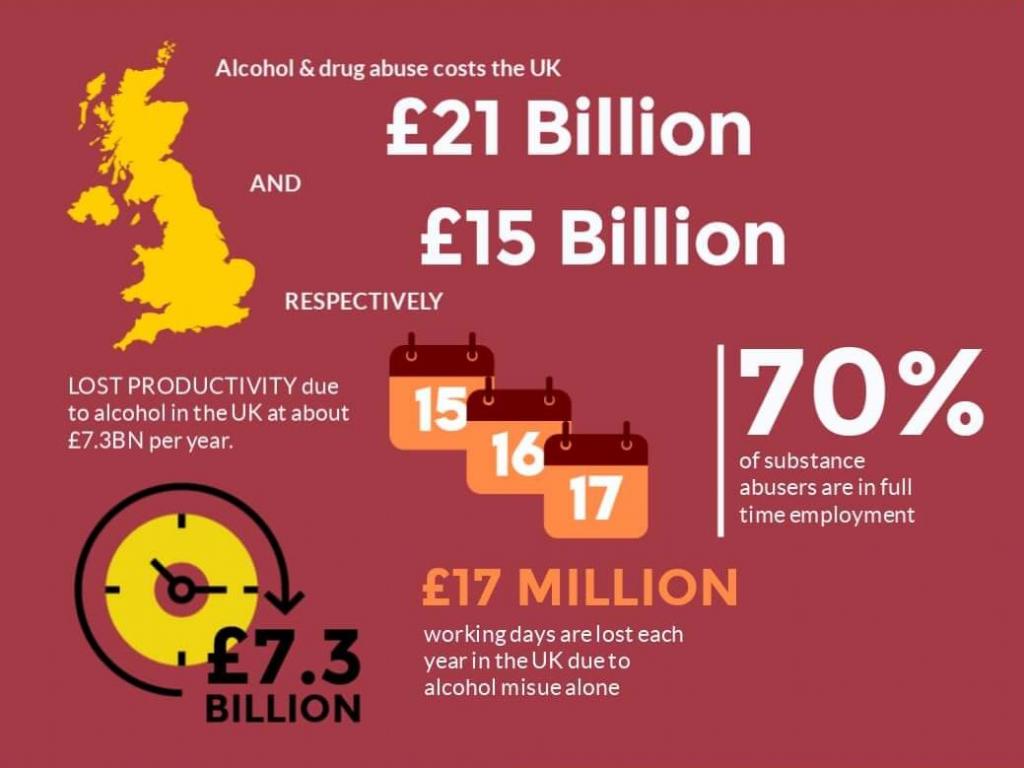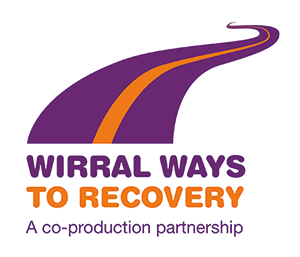Substance and Alcohol Misuse
This page refers to substance misuse by parent’s and the potential safeguarding risks addiction can cause to children. The WSCP also has a page for parents/carers which is available here: https://www.wirralsafeguarding.co.uk/parental-substance-misuse/
See also: Working with Children and Families Affected by Substance Misuse – WSCP Guidance for Professionals
11.6 Joint Local Protocol between Drug and Alcohol Partnerships and Children and Family Services
Introduction
Parental substance misuse refers to the abuse of drugs and/or alcohol by parents and cares of children and young people. Whilst there may be different treatment methodologies for adults with these problems, they are considered together because the consequences for the child are quite similar. Substance misuse refers to both illicit drugs, alcohol, prescription drugs and solvents, the consumption of which is either dependent use, or use associated with having harmful effect on the individual or the community.
National Serious Case Reviews and Domestic Homicide Reviews have identified domestic abuse, parental mental ill health and drug and alcohol misuse as significant factors in families where children have died or been seriously harmed. Where all three issues are present, they are commonly described as the ‘toxic trio’.
Substance misuse costs the UK economy £21 billion each year. This, and other costs can be seen in the infographic below.
Risks
Drug or alcohol misuse of a parent can have an impact on children in a number of ways, including:
- Substance misuse in pregnancy may impair the development of an unborn child;
- The risk of physical injury to a child sleeping next to an adult, occurring as a result of the adult lying over or against the child (over lay) is increased if the adult is sedated due to the effects of alcohol and/or prescribed or illicit drugs;
- The risk from drugs and drug equipment being left lying around – there have been a number of cases recently in Wirral where children have ingested methadone that was left unattended
- A parent’s practical caring skills may be diminished by substance misuse;
- Substance misuse, or withdrawal from substance misuse, may give rise to mental states or behaviour that put children at risk of injury, psychological/emotional distress or neglect;
- Children’s physical, emotional, social, intellectual and developmental needs can be adversely affected by their parent’s misuse of substances
- Substance misusing parents may find it difficult to prioritise the needs of the children over their own i.e.: health appointments, schooling;
- Children may be introduced to drug and alcohol misuse at an early age by the behaviour of the parents and the availability of the substances within the home.
- Money available to the household to meet basic needs may be reduced;
- Members of the family, including children, may be drawn into criminal activity;
- Children may be at risk of Physical Harm, or death if drugs and drugs paraphernalia are not stored safely and children have access to them;
- Children may be endangered if they are carried as passengers in vehicles driven by a substance misusing parent;
- Children being forced to take on a caring role and feeling they have the responsibility to solve their parent’s, alcohol and drug problems.
- There are potential risks to the child from parental acquaintances or family members if they are also involved in drug/alcohol misuse.
Indicators
Parents may be aware that their substance misuse behaviour has a negative impact on their child; there is a risk in focusing on the adult’s difficulty and in supporting their attempts to control their behaviour. The real impact on the child can be overlooked or seen as a secondary consideration.
Substance misuse may affect a parent’s ability to engage with their child. It may also affect a parent’s ability to control their emotions. Severe mood swings and angry outbursts may confuse and frighten a child, hindering healthy development and control of their own emotions. Such parents may even become dependent on their own child for support. This can put stress on a child and mean they miss out on the experiences of a normal childhood.
The impact of parental substance misuse will vary according to the age and developmental stage of the children. Some children, for example children with physical or learning disabilities or health problems, may be particularly vulnerable and parents who misuse substances may have difficulty in meeting their additional needs. Assessment of the quality of care parents are providing must take into account the needs of each child individually. The Graded Care Profile2 is a useful tool for measuring the level of care given to a child/ children.
Consequences
Consequences of substance misuse include lost jobs, unsafe homes (littered with half empty bottles or discarded syringes), broken marriages, severed family ties and friendships, potential involvement in criminal behaviour, chronic health risks and disruption of efforts made by a services to help.
Any professionals, carers, volunteers, families and friends who are in contact with a child in a drug / alcohol-misusing environment must ask themselves “What is the child’s daily lived experience like in this environment?
Safeguarding and Referral
Where safeguarding concerns exist a referral to Children’s social care via the Integrated Front Door in line with the Referrals Procedure should be made and the practitioners from adult services, or other relevant agencies, should work in collaboration with Children’s social care.
However, it is important to remember that substance misuse by parents does not automatically indicate child neglect or abuse; therefore the children of parents who misuse substances should not automatically become subject to statutory safeguarding processes. Consideration should be given as to whether an Early Help Assessment would be appropriate for the child or young person. The Early Help web page can be accessed here.
Where any agency encounters a substance user who is pregnant and whose degree of substance misuse indicates that their parenting capacity is likely to be seriously impaired, they must make a referral to Children’s social care.
Protective Factors
Risks associated with parental drug use can be mitigated by other protective factors. These include:
- Sufficient income and good physical standards in the home.
- A consistent and caring adult, who will provide for the child’s needs and give emotional support.
- Regular monitoring and help from health and social work professionals, including respite care and accommodation.
- An alternative, safe residence for mothers and children subjected to violence and the threat of violence.
- Regular attendance at nursery or school.
- Sympathetic and vigilant teachers.
- Belonging to organised out-of-school activities, including homework clubs.
Wirral Ways to Recovery
Wirral Ways to Recovery (WWR) is a free and confidential drug and alcohol service for adults (including offenders), young adults, families, carers and affected others in Wirral. They are the community substance misuse service in Wirral and they offer the following services:
• Open access for assessment etc (by drop-in) at all Hubs from 9-5 Monday to Friday. Additionally, there is also access from 10-2 on a Saturday at the Birkenhead Hub only
• Street Outreach Teams
• Housing Support and Advice
• Community detoxification
• Foundations of recovery workshops
• Access to residential detoxification and rehabilitation
• Service user computer suites
• Specialist Nurses
• Psychological Therapists
• Recovery Champions
• Support with education, training and employment
• ‘Think Family’ workers
• Peer Mentoring training/diploma and opportunities
• Volunteering opportunities
• Family carer support services
The WWR website includes details about how to refer (including self-referral) into the service, as well as online confidential self-assessment tools for adults concerned about their own drug and alcohol usage.
Ketamine Concerns
Wirral has recently seen a concerning rise in the amount of young people using Ketamine. Multi agency practitioners are putting together a package of support for our community in response to this, please see our Ketamine awareness page with detailed information and training dates you can book on to learn more about preventing harm from this drug.
Covid-19 Wirral Ways to Recovery/Change Grow Live – changes to prescribing and dispensing
Wirral Ways to Recovery (WWR) are aware that people using their services are potentially at greater risk from complications of coronavirus compared with the general population, with a significant number of people that use WWR/CGL services having been identified as vulnerable and that need to self-isolate for the recommended 12 week time scale.
Therefore, CGL have taken the following measures to mitigate the unintended consequences of the coronavirus pandemic on people (and therefore families) in receipt of MAT:
1. Individuals who already have take home MAT will be provided with two weeks supply.
2. Those on supervised consumption will move to unsupervised and will be provided with two weeks take-home supply.
3. Detoxifications and dose reductions will be deferred, with people encouraged to maintain stability during this period of uncertainty.
4. New assessments and re-starts will be offered buprenorphine as first choice and will be able to take away unsupervised titration doses for a total of two weeks.
5. Methadone induction will require daily collection at a pharmacy in the first week, followed by take-home doses when appropriate.
6. If only remote assessments are possible, and people are unable to provide a drug test – only buprenorphine titration based on an adequate history will be possible.
7. If people are advised to self-isolate, but are not being treated in hospital, they will be asked to nominate an individual to collect the prescription on their behalf and will be provided with a two week supply of medication. If they cannot nominate an individual to do this, where possible, delivery arrangements will be initiated to deliver the medication.
8. The above will be supported with:
• Provision of Take-home Naloxone
• Safe storage boxes
• Harm reduction advice
• Regular communication with first-line support
All cases have been thoroughly risk assessed and WWR/CGL consulted directly with Public Health England and the Royal College of Psychiatry in making these plans.
Contact Details for Wirral Ways to Recovery:
Website: https://www.changegrowlive.org/content/wirral-ways-recovery#tab_1
Email: [email protected]
Telephone: 0151 5561335
Office Addresses: 23 Conway Street in Birkenhead, Ashton House in Moreton, and 151-153 Brighton Street in Wallasey
Further Information and Useful Links
• Alcohol Change UK information and advice up for alcohol misuse during Coronavirus – https://alcoholchange.org.uk/help-and-support/get-help-now/coronavirus-information-and-advice-hub
• Wirral Safeguarding Children Partnership Multi-agency Training for Substance Misuse –
https://www.wirralsafeguarding.co.uk/training/courses/ (free training, registration required)
• NHS Guidance for Alcohol Abuse – https://www.nhs.uk/conditions/alcohol-misuse/
• NHS Drug Addiction Getting Help –
https://www.nhs.uk/live-well/healthy-body/drug-addiction-getting-help/
• Wirral Safeguarding Children Partnership Substance Misuse Guidance Document
• Hidden Harm – Responding to the Needs of Children of Problem Drug Users – https://assets.publishing.service.gov.uk/government/uploads/system/uploads/attachment_data/file/120620/hidden-harm-full.pdf


